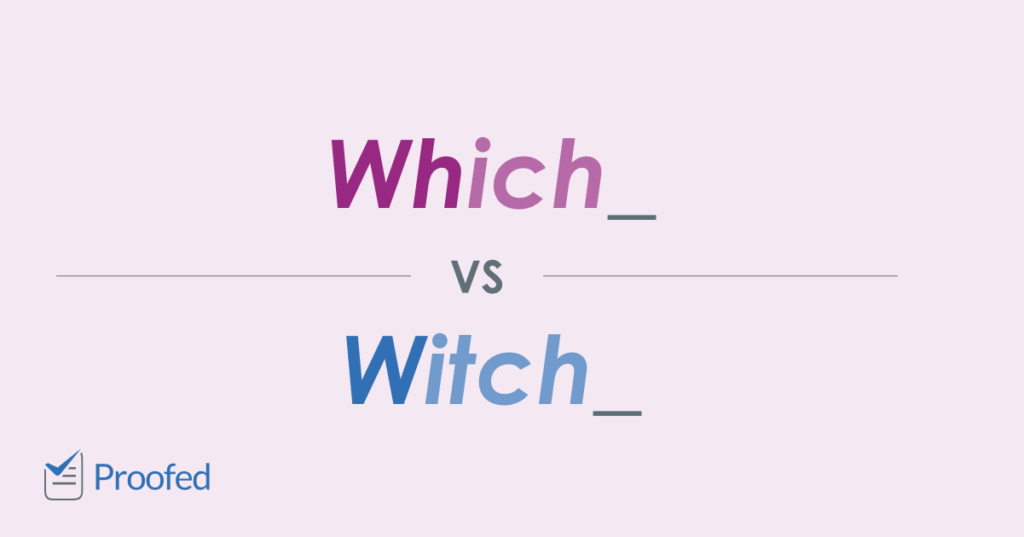When two words sound the same, it’s easy to mix them up. But sounding the same and meaning the same are very different, so this can be a problem. The words ‘which’ and ‘witch’, for example, sound identical. However, one is a term that you might use every day, while the other has a very specific usage. So join us to find out how to use ‘which’ and ‘witch’ correctly in writing.
Which (Pronoun and Determiner)
‘Which’ can be a pronoun or a determiner. Its main use is to ask questions that require specifying one or more things or people from a group or set:
Which of your brothers stole my cake?
Here, ‘which’ shows that we want to know the specific brother responsible for cake theft. We can also use ‘which’ to offer specifying information in a relative clause. In Australian English, this includes both restrictive relative clauses and non-restrictive relative clauses. For instance:
Somebody stole the cake which my father made.
Here, ‘which’ introduces a restrictive relative clause that helps us identify the cake in question by offering extra detail that distinguishes it from other cakes (i.e. in this case, who made it). A non-restrictive clause, meanwhile, provides non-essential information, such as in the following:
Somebody stole my cake, which is unfair.
Here, ‘which is unfair’ is non-essential because it does not ‘restrict’ the meaning of the main clause (it’s simply a comment on the situation as a whole). This is why we set apart non-restrictive clauses with commas. Without the comma before the ‘which’ above, the sentence would be about a cake that is ‘unfair’ (rather than ‘unfair’ being a comment on the theft).
Find this useful?
Subscribe to our newsletter and get writing tips from our editors straight to your inbox.
Witch (Magic User)
The word ‘witch’ is a noun, typically used to describe a female magic user. More specifically, when most people think of witches, they think of an evil woman in a pointy hat who rides a broomstick:
The kids dressed up as witches and ghosts for Halloween this year.
In the past, women were sometimes accused of being witches if they upset people or broke social rules (this even led to people being killed in witch hunts). Nowadays, thankfully, most women do not have to worry about anyone accusing them of witchcraft (even if they own a black cat).
You will also find followers of the religion Wicca who call themselves ‘witches’. And if you do meet a Wiccan, we’d urge you to avoid any Salem-esque panics. They’re usually quite nice people.
Which or Witch?
These words are very different in meaning:
- Which can be a pronoun or a determiner. Its main uses are to ask questions or to introduce a relative clause in a sentence.
- A witch is a female magic user, often pictured wearing a pointy hat.
Luckily, ‘which’ starts with a ‘wh-’. This makes it like other question words, such as ‘why’, ‘what’ and ‘where’. Thus, if you’re asking a question, the correct term will always be ‘which’. If you’re writing about a magical woman, on the other hand, you’ll need the word ‘witch’.
